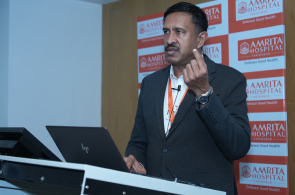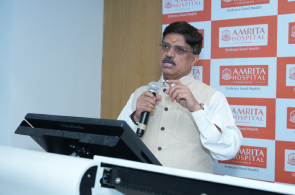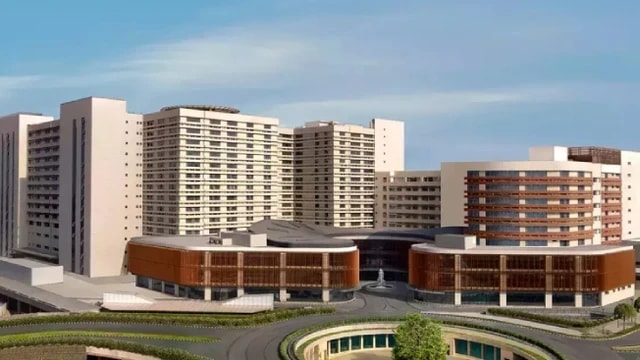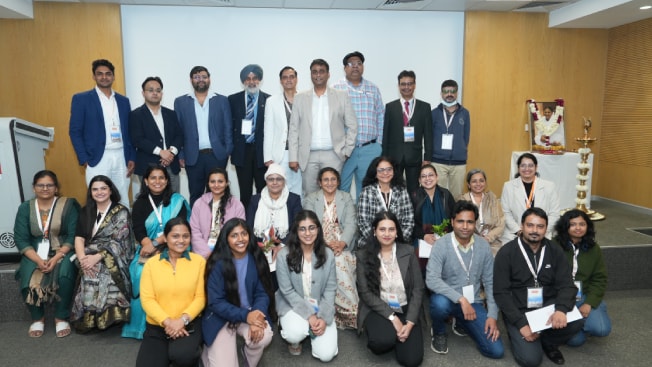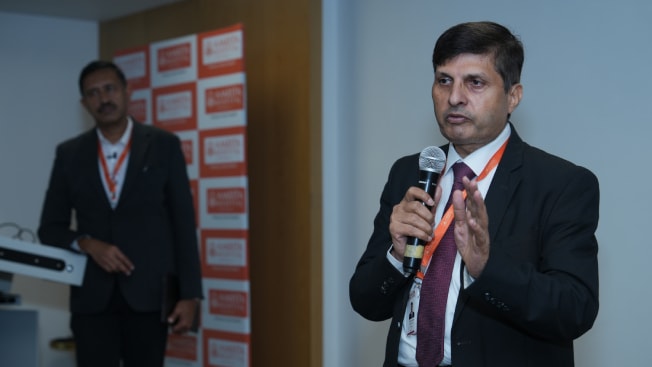
Amrita Hospital, Faridabad, has achieved a significant milestone in advanced neurological care, successfully completing over 30 Deep Brain Stimulation (DBS) surgeries for patients with Parkinson’s disease and dystonia. The achievement underscores the hospital’s leadership in offering cutting-edge neuromodulation therapies for complex movement disorders.
DBS involves implanting thin electrodes into specific brain regions, such as the globus pallidus internus (GPi) or the subthalamic nucleus (STN), connected to a pacemaker-like device beneath the skin. The device delivers electrical impulses to correct abnormal brain signals. This therapy is globally recognised for treating Parkinson’s disease, dystonia, and essential tremor when medication alone is insufficient. Clinical studies show 40–60% improvement in motor function and disability scores within 6–12 months of DBS, with benefits often lasting for years.
Parkinson’s disease affects nearly 10 million people worldwide, including an estimated 700,000–1,000,000 in India, causing tremors, rigidity, and slowed movement that often progress despite treatment. Dystonia, though less common, is equally disabling, leading to involuntary muscle contractions, twisting postures, and painful spasms. In India, the condition remains underdiagnosed due to limited data. DBS offers patients a chance to regain independence when conventional therapies fail.
International data shows that DBS is a safe procedure, with peri-operative mortality under 0.5%, intracranial bleeding in 1–2% of cases, infections in 1–3%, and hardware revisions required in approximately 6% of patients over the long term. At Amrita Hospital, patients report significant improvements in mobility, daily activities, and quality of life.
Dr. Sanjay Pandey, Head of Neurology, said, “Parkinson’s disease and dystonia can rob patients of independence and dignity. Deep Brain Stimulation is not just about controlling tremors—it is about restoring confidence and giving people their lives back. Completing over 30 surgeries reflects our commitment to advanced neuroscience in India.”
Dr. Anandh Balasubramaniam, Senior Consultant & HOD, Neurosurgery, added, “Each DBS surgery combines precision engineering with medical expertise. Accuracy down to millimetres is crucial, but the reward—a patient walking, writing, or eating independently—is immeasurable. This milestone demonstrates the capability of our multidisciplinary surgical team.”
Mrs. Saroj Devi from Delhi, who underwent DBS at Amrita Hospital, shared, “Before the surgery, my body twisted and cramped uncontrollably. I could not walk steadily, eat properly, or write. After DBS, I feel as if I have been given a new life. I can stand tall, perform daily tasks, and live without fear. For me and my family, this was truly a miracle.”
Amrita Hospital’s DBS program brings together neurologists, neurosurgeons, neuropsychologists, anesthetists, imaging specialists, and rehabilitation experts. Patients are carefully screened, surgery is guided by advanced imaging, and long-term follow-up ensures optimal outcomes.
Looking ahead, the hospital aims to expand access to DBS by raising awareness, supporting early diagnosis, and building training opportunities for clinicians across India.
“Our goal is not just to celebrate this milestone, but to ensure that many more patients in India benefit from DBS. With movement disorders on the rise, therapies like this must become more accessible,” Dr. Sanjay Pandey added.
Key Highlights
- Over 30 DBS surgeries for Parkinson’s disease and dystonia performed at Amrita Hospital in 2 years
- 1000+ DBS procedures conducted in India annually
- 67% of global DBS cases are for Parkinson’s disease, 24% for essential tremor, 4% for dystonia
- Clinical outcomes: 40–60% improvement in motor symptoms post-DBS
- Safety: Mortality
